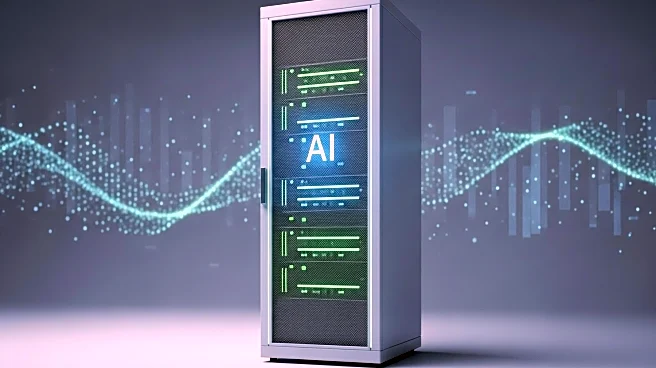What is the story about?
What's Happening?
Nvidia CEO Jensen Huang has announced a significant partnership with OpenAI, marking the first direct purchase agreement between the two companies. Previously, OpenAI acquired Nvidia's chips through cloud providers like Microsoft Azure, but this new deal eliminates the middleman, allowing for a more direct collaboration. Nvidia plans to invest up to $100 billion to assist OpenAI in building AI infrastructure, including data centers with approximately 10 gigawatts of computing power. The first gigawatt is expected to be operational by the second half of 2026. This partnership is described as incremental compared to Nvidia's collaborations with other AI partners such as Oracle, CoreWeave, and Intel.
Why It's Important?
The direct partnership between Nvidia and OpenAI is poised to significantly impact the AI industry by streamlining operations and potentially accelerating AI development. By removing intermediaries, OpenAI can directly access Nvidia's advanced computing technology, which may enhance efficiency and innovation in AI applications. The substantial investment by Nvidia underscores the growing importance of AI infrastructure and could lead to advancements in AI capabilities. This collaboration may also influence market dynamics, as Nvidia strengthens its position as a key player in AI technology, potentially affecting competitors and stakeholders in the tech industry.
What's Next?
The partnership is set to progress with the first gigawatt of computing power expected to be online by late 2026. As Nvidia and OpenAI work closely, there may be further developments in AI infrastructure and technology. Stakeholders, including other tech companies and investors, will likely monitor the progress and outcomes of this collaboration. The success of this partnership could lead to more direct agreements between hardware providers and AI developers, reshaping industry practices and partnerships.
Beyond the Headlines
This partnership highlights the evolving landscape of AI development, where direct collaborations between hardware and software companies become increasingly crucial. The ethical and legal implications of such partnerships may come under scrutiny, particularly concerning data privacy and security in AI operations. Long-term, this could lead to shifts in how AI infrastructure is developed and managed, influencing regulatory frameworks and industry standards.















